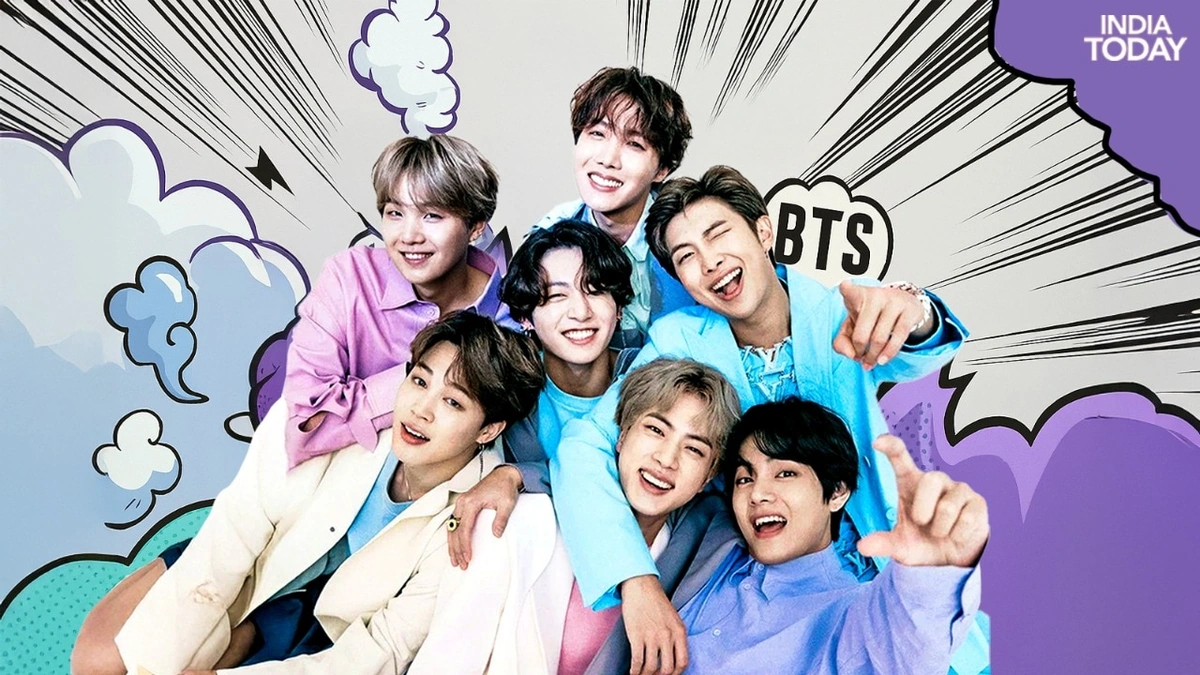Think BTS is just about catchy tunes and synchronized dance moves? Think again. Sure, they’ve got the music down, but what fascinates me is the ripple effect they’ve created – a wave of cultural influence that’s reshaping the landscape. This isn’t just about being a boy band; it’s about something much bigger. So, let’s dive in and unpack what makes BTS a genuine phenomenon.
The Untapped Power of Fandom and Connection

Let’s be honest, boy bands have been around forever. But here’s the thing: the connection BTS has forged with their ARMY is different. It’s built on authenticity, openness, and a shared journey. They’re not just performers; they’re storytellers, sharing their struggles, anxieties, and dreams.
And that’s where the magic happens. According to social media analytics, the ARMY isn’t just passively consuming content; they’re actively engaging, creating, and advocating. This level of fan involvement turns casual listeners into dedicated supporters and the BTS members into relatable figures. It’s a masterclass in building community in the digital age. A common mistake I see people make is underestimating the power of a loyal fandom, but the ARMY proves how wrong that is. Plus, it helps that they constantly release new music.
Music as a Mirror | Reflecting Global Issues
BTS doesn’t shy away from addressing social issues. Their lyrics often touch on mental health, self-love, and societal pressures. It’s not just fluff; it’s real, raw, and resonates with a generation grappling with similar challenges.
Take “Answer: Love Myself,” for example. It’s a powerful anthem of self-acceptance, encouraging listeners to embrace their imperfections. It’s more than just a song; it’s a message of hope, especially for young people struggling with identity and self-esteem. What fascinates me is their courage to address complex themes within a genre often perceived as superficial. By acknowledging real-world issues, they connect with fans on a deeper emotional level. It all goes back to fostering community.
The Business Blueprint | Redefining the Music Industry
BTS’s success isn’t just about talent; it’s about a savvy business model that challenges the traditional music industry. They’ve embraced social media, built a direct relationship with fans, and maintained a level of creative control rarely seen in mainstream pop.
Consider their use of platforms like YouTube, Twitter, and Weverse. They’re not just promotional tools; they’re avenues for direct communication, behind-the-scenes glimpses, and exclusive content. This creates a sense of intimacy and transparency, fostering stronger bonds with the ARMY. And it’s working. BTS’s global presence is undeniable, and their business model is being studied by industry leaders. And, who knows? Maybe some day they’ll start a company with the goal of making the world a better place.
The Future of Fandom and the BTS Effect
So, what’s next for BTS and the future of fandom? I think we’re seeing a shift towards more authentic, community-driven experiences. The ARMY’s influence extends beyond music, impacting social and political movements. They’ve organized fundraising campaigns, advocated for social justice, and amplified marginalized voices. This is a powerful force for change, and it’s only going to grow.
What’s really interesting is the impact BTS has on younger generations. It’s pretty clear that they act as role models for many. Sure, they are famous. But they are also good people, and they make a point of expressing positivity, equality, and love. That’s why they’re role models for so many young people.
And hey, if you want to know more, check out this article to learn all about Taron Egerton.
Ultimately, BTS is more than just a K-pop group; they’re a cultural phenomenon that’s reshaping the music industry, empowering fans, and inspiring change. This is the BTS effect, and it’s here to stay.
FAQ: Unpacking the BTS Phenomenon
Why is BTS so popular?
It’s a combination of catchy music, synchronized dance moves, authentic connection with fans, and addressing social issues in their lyrics.
What is the BTS ARMY?
It’s the name of BTS’s incredibly dedicated and active fanbase, known for their support, engagement, and advocacy.
How has BTS changed the music industry?
By embracing social media, building direct relationships with fans, and maintaining creative control, they’ve challenged the traditional music industry model.
What social issues does BTS address in their music?
They often touch on mental health, self-love, societal pressures, and the importance of embracing individuality.
Is BTS still together?
Yes, BTS is still together, although individual members have pursued solo projects.
What are some other musical artists who have impacted the music industry?
Many artists have made significant contributions to the music industry. One artist that comes to mind is Kid Rock .




